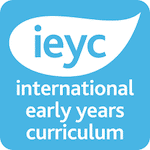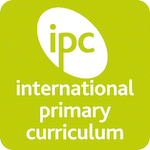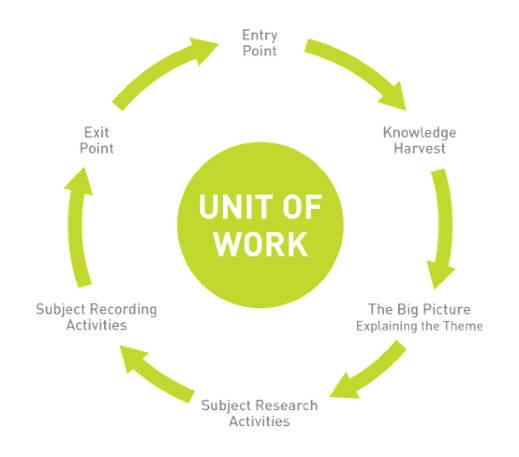The Primary Section
In the Primary School, our children learn in a happy, stimulating and safe environment. Classes are limited to 16 children and are of mixed ability. All children are motivated and encouraged to achieve their full potential. Carefully planned activities and experiences give children the confidence and enthusiasm to become life-long learners. Teachers are sensitive to the needs of the children in their classes and seek to ensure that they are able to benefit fully from every aspect of school life. Differentiation plays a key part in supporting each child on their individual learning journey. There is a close partnership between teachers and parents who are recognised as having an important role in the education of their children. For those students requiring extra support or with particular needs, Homeroom teachers also work closely with the Learning Support team.

International Early Years Curriculum
Our Play School and Reception classes form the Early Years Foundation Stage. Teachers follow the International Early Years Curriculum which is an innovative toolkit based on research, global best practice and the developmental needs of children age 2 ½ – 5. The IEYC places the child at the heart of the curriculum, ensuring that learning is personalised and that the curriculum effectively ‘wraps around’ the needs and interests of the child. It supports key areas of learning through enquiry and play-based approaches, encompassing all curriculum areas including personal, social and emotional development. The curriculum contains themed Units of Learning. These are sequenced through the IEYC Process of Learning. This captures children’s natural curiosity as a starting point and, within an enabling environment, balances child-initiated and teacher-scaffolded provision.

International Primary Curriculum
From Year 1 to Year 5, our students follow the International Primary Curriculum (IPC) which is a comprehensive, thematic, creative curriculum for 5-11 year olds, with a clear Process of Learning and specific Learning Goals for Subject, International and Personal learning. The IPC design focuses on improving learning and is guided by three key questions:
- What kind of world will our children live and work in?
- What kinds of personal qualities and dispositions will help our children to succeed in the world?
- What kinds of learning experiences will our children need to prepare them for the future?
The curriculum contains over 100 thematic Units of Learning. Teachers choose the Units (each lasts a number of weeks) that will interest, engage and excite their children the most, and work well in the individual context of the school.
The learning goals are the foundation on which the International Primary Curriculum is built. The IPC provides children with subject goals, personal learning goals, and uniquely, international learning goals, and these are defined for each age phase.
Subject learning goals cover the knowledge, skills and understanding of children relating to the subjects they are learning. There are subject learning goals for Science, ICT & Computing, Technology, History, Geography, Music, Drama, Physical Education, Art and Society. Specialist teachers deliver the Art, Music, Drama, PE and Art elements of the IPC units.
Personal learning goals underpin the individual qualities and dispositions we believe children will find essential in the 21st century. There are 8 IPC Personal Goals – enquiry, resilience, morality, communication, thoughtfulness, cooperation, respect and adaptability. These personal goals also form the JFK Core Values. Opportunities to experience and practice these are built into the learning tasks within each unit of work.
International learning goals are unique to our curriculum and help young children begin the move towards an increasingly sophisticated national, international and intercultural perspective. Each thematic IPC unit includes an international aspect, to help develop a sense of ‘international mindedness.’
Our Year 1/2 class forms Key Stage 1 (5-6 year olds) and follows the Milepost 1 units of the IPC. Year 3/4 class (7-8 year olds) learn through Milepost 2 while Milepost 3 units are studied by the Year 5 class (9-10 year olds).
English
From Reception, children follow the Nelson English programme of study. From Year 3 onwards, those who have English as an Additional Language may be supported by our EAL department who work closely with homeroom teachers. This support is tailored to the needs of individual children.
Maths
For our Maths lessons, we use the Abacus Maths programme of study from Reception to Year 5 with enrichment activities provided by Cambridge Maths. The ActiveLearn online platform provides fun activities to support learning in English and Maths.
Citizenship
Our Citizenship programme focuses on encouraging children’s emotional and social development, confidence, independence, and health and safety awareness, and on developing their moral thinking, values and actions. Children are encouraged to develop knowledge, understanding and skills in two connected strands:
- Personal Understanding and Health
- Mutual Understanding in the Local and Wider Community.
Digital Citizenship forms an important part of our Citizenship programme. It equips our students with the knowledge, skills, and resources to succeed as lifetime learners. It also helps them learn to engage within a digital environment with responsibility and confidence to develop as leaders who will leave meaningful impacts in the lives of others.
Modern Foreign Languages
French is introduced in Reception. Once students reach Year 3, these lessons are streamed. Students are also introduced to the German language and the Swiss culture in Reception.

